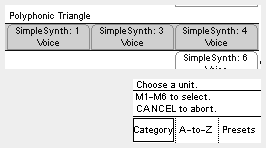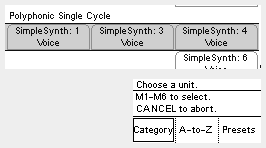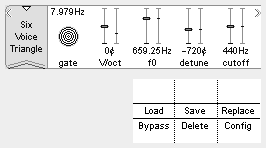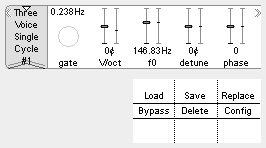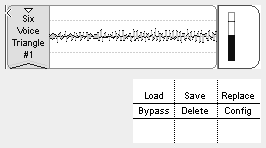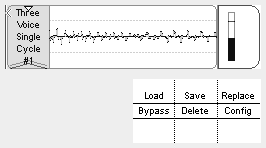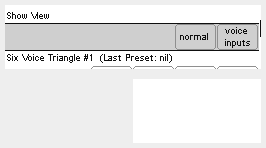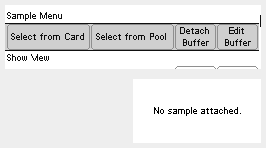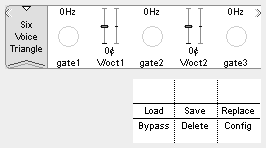Simple Synthesizers
A collection of simple polyphonic synthesizer units for the ER-301, built and tested on firmware v0.4.26.
These units are built utilizing the ER-301 Middle Layer SDK. Although they would be easy enough to patch manually through the UI, the SDK gives us an incredible efficiency boost. The three voice unit uses about 15% CPU, which is a significant reduction from what a comparable UI patch would necessitate.
As a result, we can use the simple synthesizers as macro units during patch creation, extending the already massive utility of the ER-301.
Installation
To install, simply download this repo and copy the SimpleSynth directory to your SD card under ER-301/libs.
The new units will be available on the insert screen.
The following units are available:
- Polyphonic Saw
- Polyphonic Triangle
- Polyphonic Single Cycle
Each with 1, 3, 4, and 6 voice variations.
Patching Ideas
-
Use an external midi-to-cv module to send multiple gates and pitches to the ER-301 to use it as a true polyphonic synthesizer.
-
Set the gate mode for each voice to "toggle" (simply hold the M button to quickly edit a control) and use the unit as an oscillator+filter bank.
-
Patch a single gate CV to all the voice gates and manually set the V/Oct tuning to trigger chords.
-
Use the fantastic ER-301 hold mode to set different chord values in the unit and manually interpolate between them ala the THX sound (with much fewer voices of course :P).
-
Create a cheap (as in CPU) bass synth by using two mixers to layer a 1 voice single cycle square and a 1 voice saw.
-
Patch an arpeggiator into the round robin inputs for hours of fun!
Normal Parameter Overview
| Parameter | Description |
|---|---|
| gate | The gate input triggers each voice by round robin. The tune input is held when the gate drops; so playing legato will only use a single voice. Each voice has it's own ADSR envelope triggered by this gate. |
| V/oct | The V/oct offset applied to the current voice in the round robin. |
| f0 | The fundamental frequency for the oscillators in all voices. |
| detune | The pitch offset of the second oscillator in all voices. Each voice is comprised of two oscillators. |
| phase | The phase offset of the single cycle oscillator. |
| scan | Selects the sample to use when multiple samples are loaded into the single cycle oscillator. |
| cutoff | The base filter cutoff for all voices. Each voice has it's own low-pass ladder filter. |
| Q | The filter resonance for all voices. Starts to self resonate around 0.6. |
| fenv | The filter envelope amount for all voices. Determines how much the ADSR for each voice affects the filter cutoff. Can also be set to negative values to "duck" the filter. |
| A | The ADSR attack value for all voices. |
| D | The ADSR decay value for all voices. |
| S | The ADSR sustain level for all voices. Can also be used as an overall level control in certain situations. |
| R | The ADSR release level for all voices. |
Voice Input Parameter Overview
The individual voice gate and tune controls are broken out in this view so they can be assigned individually.
| Parameter | Description |
|---|---|
| gateN | The gate input for the Nth voice. Switch this gate to toggle mode to convert the unit into an oscillator bank. |
| V/octN | The V/Oct offset for the Nth voice. Stacks with the round robin offset from the normal view. |
